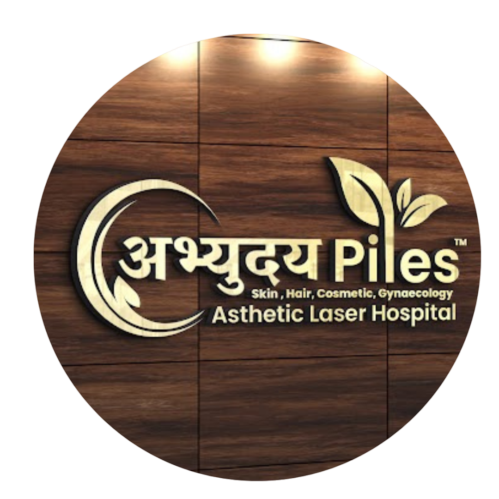
Anal Fissure Treatment in Nagpur
Finding Relief, Restoring Comfort: Our Fissure Treatment Solutions.
Anal Fissure Treatment in Nagpur
Healing Starts Here: Gentle Care for Anal Fissure Treatment in Nagpur
Are you experiencing the discomfort and pain associated with an anal fissure? At Abhyudaya Hospital in Nagpur, we specialize in advanced and ayurvedic anal fissure treatment in Nagpur to alleviate your symptoms effectively and promote healing. Led by renowned proctologist Dr. Praveen Sahave, our team is dedicated to providing compassionate care and personalized treatment plans tailored to your unique needs. We understand the challenges posed by anal fissures and offer comprehensive treatment options to help you find relief and improve your quality of life.

What is Anal Fissure?
Restoring Balance, Rebuilding Confidence: Transformative Anal Fissure Treatment for You
Ayurveda mention fissure in ano simply in “PARIKARTIKA” where pain at anal region is like cutting something {Kartanwat}. An anal fissure is a tear or ulcer (open sore) that develops in the lining of the anal canal. Common symptoms of anal fissures include: a sharp pain or burning sensation when passing a stool (faeces) noticing bright red blood on toilet paper or on the toilet seat.
The anal canal is the last part of the large intestine (colon), and is located between the rectum (a small pouch where stools are stored) and the anus (the opening through which stools are passed out of the body).
The anal canal is approximately 2.5-4cm (1-1.5in) long in adults and is lined by a thin layer of cells known as squamous epithelium cells. If this lining becomes damaged, an anal fissure can develop.

Symptons of Anal Fissure
- Acute anal fissure: Where symptoms do not last longer than six weeks.
- Chronic anal fissure: Where symptoms last longer than six weeks
Anal fissures usually cause the following two symptoms:
Pain
An anal fissure causes a severe and sharp pain when you pass faeces (stools). Some people have described the pain as feeling like trying to pass broken glass. Once this sharp pain has passed, it is usually replaced by a deep burning pain, which may be felt for several hours after you have been to the toilet.
Bleeding
Sometimes an anal fissure can also cause bleeding when you pass stools. Most people notice a small amount of bright red blood, either in their stools or on the toilet paper.
Causes of Anal Fissure
Primary anal fissure
It is not known exactly what causes primary anal fissures to occur, but it is thought that most cases first develop when a particularly hard or large stool damages the anal canal. This type of damage is common and usually heals within a few days.
Constipation
Constipation is the most common cause of a secondary anal fissure. Constipation is a very common condition where you do not pass stools as regularly as normal. It can cause your stools to become dry and hard, which increases the risk of the stool tearing the lining of your anal canal. Another common problem is that some people try to avoid passing stools due to the pain of an anal fissure. This can trigger the symptoms of constipation, which means that the fissure will not have a chance to heal.
Inflammatory bowel disease (IBD)
Inflammatory bowel disease (IBD) is a term that is used to refer to a number of conditions that cause intestinal inflammation (swelling), such as Crohn’s disease and ulcerative colitis.
Pregnancy
During the third trimester of pregnancy (week 29 to birth), your risk of developing an anal fissure is increased. You may also develop an anal fissure during childbirth because the continual straining of your muscles can sometimes cause the lining of your anus to tear.

Treatment Options for Anal Fissure
Non-surgical treatments are recommended initially for acute and chronic anal fissures. These include topical nitroglycerin or calcium channel blockers, or injection of botulinum toxin into the anal sphincter. Other measures include warm sitz baths, topical anesthetics, high-fiber diet and stool softeners.
- Medication
- Softening stools
- Softening stools
- Baby wipes or toilet paper
- Topical anaesthetics
- Painkillers
- Glyceryl trinitrate (GTN)
- Calcium channel blockers

Kshar Karma
Application of Kshar (Ayurvedic Medicine) or tightening of a Ksharsutra on a specific affected area.

Basti Therapy
Medicated oil is inserted in anoes for 7 to 40 days which hills fissure in ano
Relief Beyond Measure: Discover Our Fissure Treatment Solutions !
Abhyudaya Ayurveda and Laser Hospital
Frequently Asked Questions
Gentle Care for Lasting Comfort
How is an anal fissure diagnosed?
Diagnosis typically involves a physical examination, including an inspection of the anal area. Your doctor may also perform a digital rectal exam or use an endoscope to examine the fissure more closely.
How long does it take to heal from an anal fissure?
Healing time depends on the treatment approach and the individual’s overall health. With conservative treatments, fissures can heal within a few weeks. Surgical treatments may require a longer recovery period, typically a few weeks to a couple of months.
Is surgery always required for treating an anal fissure?
No, many anal fissures can heal with conservative treatments. Surgery is usually considered for chronic or non-healing fissures.
What can I expect during recovery after fissure treatment?
Recovery may involve managing pain, following a high-fiber diet, and attending follow-up appointments to monitor healing.
Are there any risks or complications associated with fissure surgery?
Potential risks include infection, bleeding, and changes in bowel control. Discussing these risks with your surgeon is important before the procedure.
How can I prevent anal fissures from occurring?
Preventive measures include maintaining a high-fibre diet, staying hydrated, avoiding straining during bowel movements, and practising good anal hygiene.
